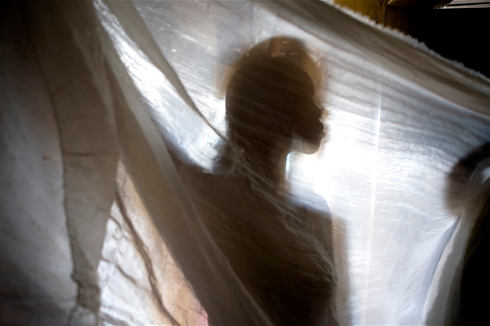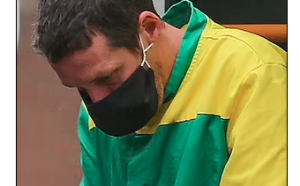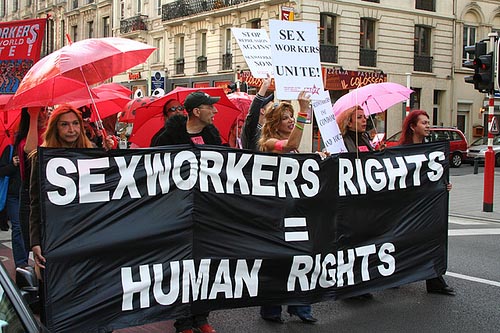KATHMANDU, 3 September 2013 (IRIN) – Laws and interventions aimed at reducing human trafficking by targeting commercial sex workers can, whatever their good intentions, actually endanger their health and result in human rights violations, experts say.
According to the UN Office on Drugs and Crime (UNODC), 58 percent of human trafficking cases are for sexual exploitation, a number that activists worry has led the public and policy-makers to conflate trafficking with sex work, to the detriment of effective responses.
Part of the problem, say activists, is that anti-trafficking programmes often take the form of “raid and rescue” missions – in which brothels or other locations identified by the authorities as potentially housing trafficking victims are forcefully entered.
These operations can invade privacy and reduce public health outreach efficacy by scattering networks of sex workers who, in some cases, had implemented successful sex worker-led health programming, according to UN Development Programme (UNDP) research from 2012 on sex work in Asia and the Pacific.
Regardless of the objective of the operations, “rescue raids of sex establishments have exacerbated violence against sex workers and compromised their safety,” say the World Health Organization (WHO) and the Global Coalition on Women and AIDS.
This can compound the criminalization of sex work which, according to UNDP’s analysis, “legitimizes violence and discrimination against sex workers (particularly from law enforcement authorities and health care providers).”
For some UN officials, the problem is not the efforts to end human trafficking per se, but the fact that anti-trafficking work is complicated and sometimes implemented imprecisely.
“Any covert [anti-trafficking] police operation results in intrusion into the private lives of both those who are targeted by the activity, and others who are not,” Martin Reeve, UNODC’s regional adviser on human trafficking for Southeast Asia and the Pacific, told IRIN.
“This collateral intrusion needs to be properly managed and risk assessed. Ideally all such activity will be intelligence-led, and not simply a speculative exercise.”
Otherwise, say activists, the rights of sex workers will continue to be violated, and sometimes violently.
Part of the protection work needed, they say, is changing the approach of anti-trafficking itself.
Keep reading at: Poor police relations







